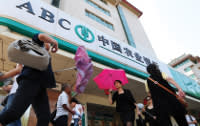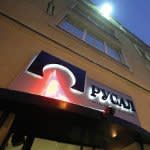Watch Michelle Price, Business Editor, discuss the findings of this feature
Investment bankers claim there is no such thing as an easy deal, however frothy the market. This adage rings particularly true in the Asia-Pacific region, which, despite leading the global recovery with celebrated gusto, is nevertheless proving a tricky environment in which to get initial public offering (IPO) deals done.
For the most part, Asia itself, which is expected to grow about 7.5% for 2010, is not the problem. According to Kester Ng, joint head of Asia-Pacific equity capital markets for JPMorgan, the behaviour of Asian stock markets has in recent months become closely linked to macroeconomic data and the uncertainty that continues to surround the broader global outlook. May's European sovereign debt crisis, mixed data relating to US output and growing uncertainty regarding the condition of Chinese bank balance sheets have in recent months and weeks given even the most bullish investors the jitters.
Even Asia's major Chinese markets, Hong Kong, Shanghai and Shenzhen, fell by more than 10% between December 2009 and May this year, while in August, weaker-than-expected Chinese import data prompted the steepest slump in China's stocks in more than a month.
This investor anxiety and resulting volatility has left its mark on the regional IPO pipeline. Between January and May this year, some 13 Asian IPOs were pulled, including the $2.7bn IPO of Hong Kong's Swire Properties and the Singapore offering of China's New Century Shipbuilding, while other deals were quietly delayed. The stream of disappointing news was punctuated in July by the long-anticipated dual listing of financial behemoth Agricultural Bank of China (ABC), which is the world's largest ever IPO.
But even upon ABC's debut in Shanghai, the stock's first-day trading gain of 0.8% proved the smallest among the nine lenders that have listed on the exchange during the past four years, according to data from Bloomberg, leading some market-watchers to brand the mega-deal a disappointment. As such, says one Hong Kong investment banker, ABC offers "a lesson" to the market: in the current atmosphere, no one can take anything for granted.
And ABC is not the only deal to disappoint. Investors complain that a number of this year's significant Asian IPOs continue to underperform, in some cases trading below their listing price.
Dave Douglas, global head of equity capital markets at Standard Chartered, rejects this gloomy picture, however. "Average deals have performed to expectations. There are not bumper returns as there have been in occasional bull markets in the past. Arguably, that is a sign the market is maturing and pricing better," he says. "But to characterise the whole market as weak does not stack up, and it stacks up even less when you look at Hong Kong, Shenzhen and Shanghai."
Few could deny that China's beefy trio have performed well when viewed in a global context. New listings in Hong Kong have raised $19.1bn as of August 9 this year, more than any other exchange globally, according to data from Dealogic quoted by Dow Jones. Shenzhen, China's booming mid-cap market, took the number two spot with $18.6bn raised. Meanwhile, according to Ernst & Young, the Asia-Pacific region as a whole has driven listings globally for the first and second quarters, accounting in the second quarter for 53% of global IPOs by number of deals and some 56% of raised capital. Furthermore, the region provided nine of the top 20 IPOs over the same timeframe.
Mr Ng also stresses that the majority of cancelled IPOs have been mid-cap deals bearing greater downside risk. There is still appetite for the mega stocks, he says. "Investors are hugging the big jumbo liquid stocks right now and are paying less attention to fundamentals of small mid-cap stocks."
Watch the videoAsian IPO pipeline |
A buyer's market
All this underlines that Asia - as with other regions - remains a buyer's market. Not only are investors demanding greater discounts but they are more closely scrutinising deals and raising potential problems, say bankers. Although every abortive IPO bears its own unique back story - some of which have cast doubt on the quality of the companies in question - in most cases investors would simply not accept the price range in a period of ongoing global economic uncertainty.
This dynamic is unlikely to change in the near future. According to Alexis Adamczyk, co-head of equity capital markets Asia-Pacific, HSBC, both global and local investors are braced for a surge in issuance as pent-up supply makes its way back to the market. "In the short term, investors have the upper hand, and I don't see that changing unless the company is a real gem - or we suddenly see equity markets rising between 10% and 15%," says Mr Adamczyk.
He adds, however, that cash levels among investors are still strong, a view confirmed by other bankers. "There is a ready provision of risk capital across Asia," agrees Standard Chartered's Mr Douglas. "Is it the same as in 2007? No, it's more focused on long-term money and some of the hedge funds do not appear as active as in the past."
As savings in Asia continue to grow, more and more of this cash is found in the local Asian markets. In both Hong Kong and Singapore, for example, bankers report a steady growth in high-net-worth and private bank money.
But nowhere is the pool deeper than in the Chinese markets, where the heavy-weight mainland Chinese institutional investors - China Life, for example - are growing increasingly visible in Hong Kong IPOs, as are sovereign wealth funds, such as Chinese Investment Corporation. Although the majority of mainland Chinese listings are allocated to the country's mammoth retail investor base, the Chinese mutual fund market is also expanding at high speed.
In a bid to get deals up and running, however, bankers in Hong Kong and elsewhere in the region report a greater emphasis on cornerstone and anchor investors, who buy a predetermined chunk of shares at the as yet undetermined IPO price.
ABC, for example, sold nearly 60% of its Hong Kong offering to cornerstone investors before the deal was opened to the institutional and retail market. Similarly, China Everbright Bank, which at the time of writing was in the process of pre-marketing its $2.9bn Shanghai IPO, had earmarked 49% of its offering to cornerstone investors, according to Dow Jones.
Growth opportunity
But if recent months have tested the negotiation skills of Asia's equity capital markets (ECM) bankers, they are sitting on the biggest and most compelling ECM story in the world - China. "Investors in Asia are looking for Asia growth and in particular China growth," says JPMorgan's Mr Ng. "For those whose story isn't linked to China, or Asia more broadly, it will be relatively harder to raise capital."
Indeed, not only are China's stock markets dominating the global IPO pipeline in terms of number and capital raised, but China's markets are also producing a good chunk of the world's biggest deals. Four of the world's top 20 IPOs for the second quarter took place in China and Hong Kong, according to Ernst & Young. "In 2009 we can count on one hand the number of listed companies that have not been linked to China," says Raymond Lee, managing director and head of corporate finance at Citic Securities, based in Hong Kong. "And the China story is far from over."
As of late July, the Hong Kong stock exchange (HKEx) boasted about 80 deals either in the pipeline or in the IPO application process. As the ABC and China Everbright Bank deals illustrate, Chinese financial names - a rich source of issuance in recent years - will continue to dominate the headlines during the next six months with both Shanghai (which offers A-shares) and Hong Kong (which offers H-shares) enjoying the spoils.
"There will be lots of financial institutions group [FIG] issuance during the rest of the year," says HSBC's Mr Adamczyk. "We'll see about $10bn to $15bn raised through A-share and H-share issuance: there could easily be a good $10bn out of the H-share for China FIGs."
The most notable of these deals will be the much-anticipated flotation of American International Group's Asian life insurance arm, AIA, on the Hong Kong exchange. Arguably the most well-flagged and hotly anticipated Asian issue after ABC, the deal is expected to generate between $12bn and $15bn - although at the time of writing the outcome of the deal remains in doubt due to investor concerns over the pricing range.
In addition to China Everbright Bank and the potential AIA IPO, Shanghai and Hong Kong are preparing for a flurry of financial rights issues from Chinese banks whose balance sheets are now bloated following the government-mandated surge in domestic lending. Although some bankers believe the market may now be saturated with Chinese financial names, Citic Securities' Mr Lee argues that the market is already well prepared for these rights issues. "My feeling is that the market has been prepared for this since the third quarter last year, so the fact that Chinese banks are in need of recapitalisation is not news. With the sharp gains in new loans, and the Chinese banking regulators raising capital ratio requirements, it is inevitable."
Depending on the outcome of the AIA deal, there are likely to be few, if any, further jumbo deals this year. But there are rumours circulating in Hong Kong that state-owned Chinese megalith Citic Group will look to list at some time in 2011 in a deal that, according to one excited investment banker, could prove the biggest H-share IPO yet.

Easy as ABC: the long-anticipated dual listing of financial heavyweight Agricultural Bank of China, the world's largest ever IPO, went ahead in July
The hunger for commodities
Future regional IPOs will diversify away from financials. Measured on a per-capita basis, China, a manufacturing and export powerhouse, is a nation poor in resources and, as growth continues, the country will become increasingly reliant on external resources providers. In February this year, for example, China became a net importer of coal and is forecast to overtake Japan in becoming the world's largest coal importer. But China is also hungry for iron ore, copper and gold. As a result, resources companies, in particular those focusing on metals and mining, are becoming major players in the Asian IPO market, especially in Hong Kong.
The resources IPO pipeline comprises a number of foreign companies with China-based operations and growing China revenues, say bankers. "Investors are more and more comfortable with the idea of buying foreign companies whose assets are offshore and where the pool of demand is coming from China," says Mr Adamczyk.
Russia's aluminium giant Rusal is the most recent notable of example of this trend. In January, the debt-laden company became the first non-Asian organisation to launch a primary listing in Hong Kong, based on its Shanghai sales stream. Although concerns regarding Rusal's debts caused the stock to tank upon its debut, the listing was in other respects a coup for the HKEx, whose listings strategy centres on wooing companies from a number of resource-rich foreign markets, including Mongolia, Australia, central Europe and Russia.
Competition for emerging Mongolian companies is especially fierce, with Hong Kong, Seoul and Tokyo all jostling for business. "China will have to go overseas to secure the supply of resources in years to come and these places will need a platform to raise capital to finance exploration," says Lawrence Fok, chief marketing officer for HKEx. "We think we can have a role to play in that."
South-east of Hong Kong, the Singapore Stock Exchange (SGX) also expects Singapore's strength as a commodities trading hub to serve it well in its bid to attract Indian and Indonesian resources firms. "Resources companies are coming to us, not just from Asia but from further afield, who are looking at the Asia growth story," says Lawrence Wong, executive vice-president, head, listings at SGX. "A lot of what they produce will eventually be consumed in Asia. They need to find a platform where they can raise money and profile themselves."


China bound: Russian aluminium giant Rusal recently became the first non-Asian company to launch a primary listing in Hong Kong, while L'Occitane raised $708m in a Hong Kong primary listing to fund expansion in the domestic Chinese market
A touch of glamour
But the Asian growth story is not just defined by exports. The Chinese government's desire to stimulate domestic consumption will also play a hand in shaping the future Asian IPO market, as the April Hong Kong primary listing of L'Occitane highlights. The upmarket French cosmetics manufacturer raised $708m to fund expansion into the domestic Chinese market, in a highly oversubscribed landmark deal priced at the top end of the range. Prior to the offering, L'Occitane told the market it expected the strength of its brand image and growth prospects in China to yield a better valuation in a Hong Kong IPO than in Europe.
As L'Occitane's dazzling debut illustrates, both Asian and the Western investors are hungry for high-end consumer stocks. In a July interview with the Financial Times, for example, Anthony Bolton, president of investments at Fidelity International, revealed that his $702m China special situations fund, launched in April, will be heavily weighted towards stocks in the Chinese consumer sector. Italian fashion group Prada has publicly announced it is considering a Hong Kong listing, and other high-end European brands are expected to follow.
When they do, they will no doubt be well received. But not until the macro-global outlook is clear, say bankers, will Chinese IPOs command the overwhelming popularity seen in previous years.











